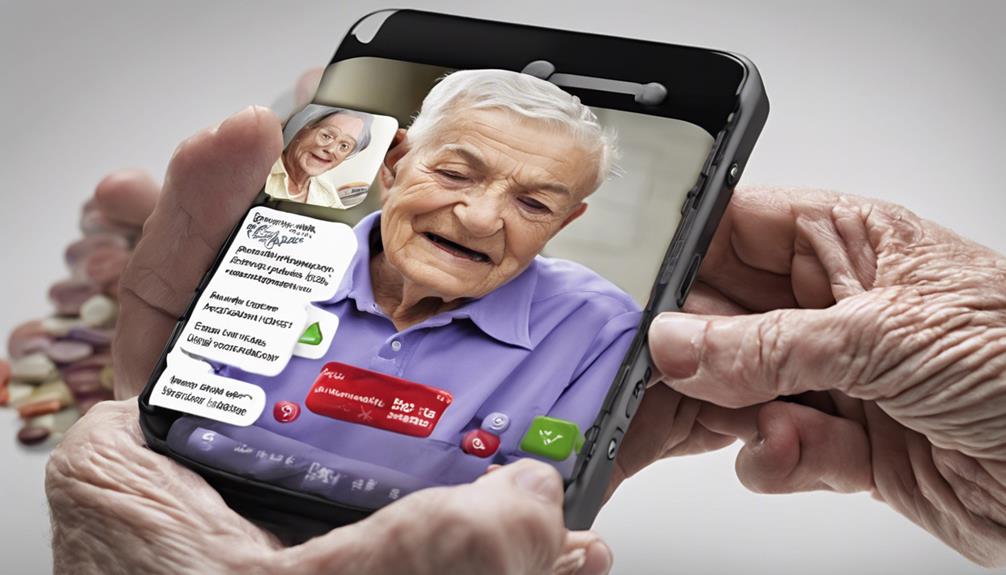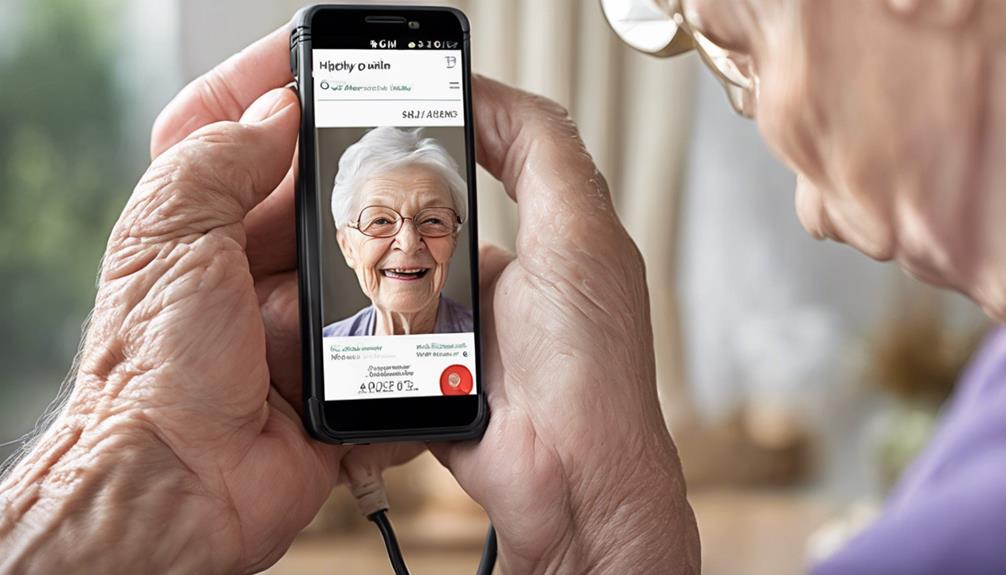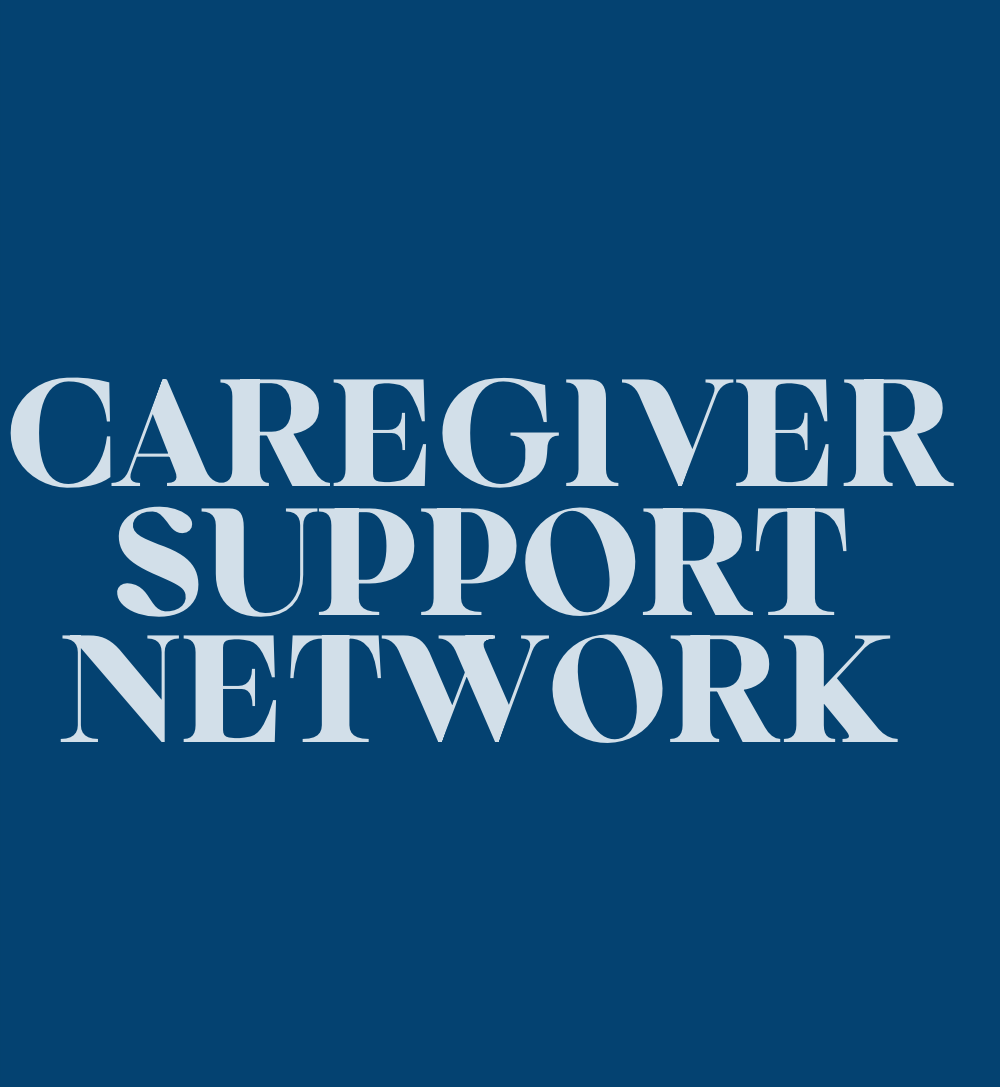Alzheimer's Care
Understanding Alzheimer’s: Dealing with Peoples’ Manias
Fascinating insights into the unique behaviors of individuals with Alzheimer's may change how you view and support them.

In Alzheimer’s disease, those affected may display distinct behaviors that present challenges in comprehension and management. These ‘eccentricities’ can vary from innocuous peculiarities to more troubling habits that disrupt everyday activities. For caregivers, dealing with these behaviors demands patience and a profound grasp of the person’s requirements.
By exploring the various types of manias in Alzheimer’s, we can uncover strategies to support both the affected individual and those involved in their care. Understanding the underlying causes of these behaviors is crucial in providing effective support and promoting a higher quality of life for all involved.
Key Takeaways
- Agitation, wandering, hoarding, repetitive behaviors common in Alzheimer’s individuals.
- Disrupted routines, communication challenges, safety concerns impact daily life significantly.
- Caregivers benefit from routine, patience, support, self-care strategies.
- Professional support, tailored care plans, community resources enhance quality of life.
Types of Manias in Alzheimer’s

What’re the common types of manias observed in individuals with Alzheimer’s disease? It’s crucial to understand that Alzheimer’s can manifest various manias that greatly impact the affected individuals and their caregivers.
One prevalent type is agitation, where patients may exhibit restlessness, pacing, or verbal or physical aggression. This can be distressing for both the individual and those around them, requiring patience and understanding from caregivers.
Another common mania seen in Alzheimer’s patients is wandering. This behavior poses serious safety concerns as individuals may wander aimlessly, potentially getting lost or injured. Implementing safety measures such as door alarms or GPS tracking devices becomes essential to prevent any harm.
Additionally, individuals with Alzheimer’s may experience hoarding behaviors, where they collect items obsessively. This can lead to clutter and safety hazards within their living environment. Caregivers must find ways to address this behavior sensitively, ensuring the individual’s well-being while maintaining a safe living space.
Understanding these various manias is crucial in providing compassionate and effective care for individuals with Alzheimer’s disease.
Impact on Daily Life

Individuals with Alzheimer’s disease often face significant challenges as the manias associated with the condition can profoundly impact their daily lives and well-being. These manias can lead to disruptions in daily routines, difficulties in communication, and increased stress for both the individuals with Alzheimer’s and their caregivers. Here is a table outlining some common impacts of Alzheimer’s manias on daily life:
Impact on Daily Life Description Disrupted routines Manias can cause individuals to struggle with following daily schedules and completing tasks. Communication challenges Individuals may have difficulty expressing themselves or understanding others, leading to frustration. Increased stress levels Both individuals with Alzheimer’s and caregivers may experience heightened levels of stress due to managing manias. Safety concerns Manias can pose safety risks, such as wandering or aggression, requiring constant supervision. Social withdrawal Individuals may withdraw from social interactions due to the impact of manias on their behavior.
Understanding these impacts is crucial in providing effective care and support for individuals with Alzheimer’s disease.
Coping Strategies for Caregivers

In navigating the challenges of caring for individuals with Alzheimer’s disease, caregivers can benefit from implementing tailored coping strategies to support both themselves and their loved ones. It’s crucial to prioritize self-care to maintain physical and emotional well-being throughout the caregiving journey. Here are three essential coping strategies for caregivers:
- Establish a Routine: Creating a structured daily routine can provide a sense of predictability for both the caregiver and the individual with Alzheimer’s. This routine can include set meal times, medication schedules, and designated periods for activities and rest.
- Practice Patience and Empathy: Alzheimer’s disease can lead to challenging behaviors and communication difficulties. By approaching situations with patience and empathy, caregivers can foster a more positive and understanding environment, reducing stress for both parties.
- Seek Support: Caregiving can be overwhelming, and it’s essential to seek support from family, friends, or support groups. Connecting with others who understand the challenges of Alzheimer’s caregiving can provide emotional support and valuable resources.
Professional Support and Resources

Professional caregivers trained in dementia care can provide invaluable support and access to specialized resources for individuals with Alzheimer’s disease. These professionals possess the knowledge and skills necessary to address the unique needs and challenges faced by those living with Alzheimer’s. By collaborating with professional caregivers, individuals with Alzheimer’s can benefit from personalized care plans tailored to their specific symptoms and preferences.
Professional support extends beyond just medical care. Caregivers can offer emotional support, guidance on communication strategies, and assistance with daily activities. Additionally, they can connect individuals and their families to community resources, support groups, and educational materials about Alzheimer’s disease. These resources can help families better understand the condition and learn how to provide the best possible care.
With the help of professional caregivers and access to specialized resources, individuals with Alzheimer’s can enhance their quality of life and overall well-being. By entrusting their care to trained professionals, families can navigate the challenges of Alzheimer’s disease with confidence and support.
Promoting Quality of Life

To enhance the well-being and quality of life for those living with Alzheimer’s disease, implementing personalized care plans and engaging in meaningful activities are crucial components.
- Tailored Care Plans: Crafting individualized care plans that consider the unique needs, preferences, and abilities of each person with Alzheimer’s is essential. These plans should encompass a holistic approach, addressing physical, emotional, and social aspects to promote overall well-being.
- Meaningful Activities: Engaging individuals with Alzheimer’s in activities that align with their interests, abilities, and past experiences can foster a sense of purpose and enjoyment. Activities such as music therapy, art sessions, nature walks, and reminiscence therapy have shown to be beneficial in promoting cognitive function and emotional connection.
- Social Interaction: Encouraging social interactions with family, friends, and caregivers can significantly improve the quality of life for individuals with Alzheimer’s. Maintaining relationships and participating in group activities can help combat feelings of isolation and enhance emotional well-being.
Frequently Asked Questions
Can Manias in Alzheimer’s Be Completely Cured or Reversed?
Yes, manias in Alzheimer’s can be challenging to completely cure or reverse. While treatments can help manage symptoms and improve quality of life, there’s no one-size-fits-all solution.
It’s important to work closely with healthcare professionals to explore various strategies and therapies. Support from loved ones and caregivers is also crucial in providing comfort and understanding for individuals with Alzheimer’s experiencing manias.
Are Certain Types of Manias More Common in Early Stages of Alzheimer’s Versus Later Stages?
Certain types of manias are indeed more common in the early stages of Alzheimer’s compared to later stages. For example, statistics show that repetitive behaviors like constant pacing or checking are prevalent in the initial phases. These behaviors may lessen or change as the disease progresses.
Understanding these patterns can aid caregivers in providing tailored support to individuals with Alzheimer’s, promoting a better quality of life for those affected by the condition.
How Do Cultural or Societal Factors Influence the Development of Manias in Individuals With Alzheimer’s?
Cultural and societal factors play a significant role in shaping the development of manias in individuals with Alzheimer’s. Our team has observed that the environment, traditions, and social norms can impact the manifestation and frequency of specific manias.
Understanding these influences is crucial for providing personalized care and support to individuals with Alzheimer’s. By acknowledging and addressing cultural factors, we can better manage and alleviate the challenges associated with manias in this population.
Are There Any Alternative Therapies or Treatments That Have Been Effective in Managing Manias in Alzheimer’s Patients?
Effective alternative therapies for managing manias in Alzheimer’s patients include music therapy, aromatherapy, and pet therapy. These interventions have shown promising results in reducing anxiety and agitation, improving mood, and enhancing overall well-being.
Incorporating these holistic approaches alongside traditional treatments can offer a more comprehensive and tailored care plan for individuals with Alzheimer’s experiencing manias. Embracing these therapies with an open mind can significantly benefit both patients and caregivers.
How Do Comorbid Conditions, Such as Anxiety or Depression, Affect the Presence and Severity of Manias in Individuals With Alzheimer’s?
When comorbid conditions like anxiety or depression coexist with Alzheimer’s, they can exacerbate the presence and severity of manias in affected individuals. These additional mental health challenges often contribute to heightened emotional distress and cognitive fluctuations.
Understanding and addressing these comorbidities is crucial in managing the overall well-being of Alzheimer’s patients. By providing comprehensive care that considers these factors, we can strive to improve the quality of life for individuals dealing with Alzheimer’s and related conditions.
Conclusion
In conclusion, navigating the manias of Alzheimer’s can be challenging for both individuals and caregivers. By understanding the types of manias, their impact on daily life, and implementing coping strategies, we can promote a better quality of life for those affected.
Remember, just as a lighthouse guides ships through stormy waters, support and resources are available to help navigate the complexities of Alzheimer’s manias. Let’s be the beacon of hope in the midst of uncertainty.
Albert brings a wealth of knowledge and expertise to our writing team. With a background in caregiving and a deep understanding of the challenges faced by caregivers, Albert’s writing resonates with authenticity and empathy. He is committed to delivering high-quality content that empowers and supports caregivers on their journey.
Alzheimer's Care
7 Must-Have Features in an Alzheimer’s Phone
Meticulously designed for Alzheimer's patients, the Alzheimer Phone offers specialized features that redefine independence and safety – discover how it's changing lives.

In the world of technology, the Alzheimer Phone stands out as a top innovation in today’s market. Designed to assist those with cognitive impairments, this device includes a range of features tailored to meet the needs of those with Alzheimer’s disease. Through its user-friendly design and safety measures, the Alzheimer Phone provides users with a sense of security and independence.
But what sets this device apart from traditional smartphones? Let's explore how this specialized technology is revolutionizing the way individuals with Alzheimer's navigate their daily lives.
Key Takeaways
- Simplifies communication and tasks
- Supports memory retention and independence
- Enhances safety and peace of mind
- Future developments to improve cognitive functions
Features of the Alzheimer Phone

When considering the features of the Alzheimer Phone, it's essential to prioritize simplicity and ease of use for individuals with cognitive impairments. Our primary aim is to create a device that caters to the specific needs of those affected by Alzheimer's disease. The interface of the phone is designed with large, easy-to-read buttons and a straightforward menu layout to minimize confusion and frustration. Additionally, voice recognition technology allows users to make calls or send messages without the need for manual input, enhancing accessibility.
One key feature of the Alzheimer Phone is its GPS tracking system, which provides real-time location monitoring for both the users and their caregivers. This feature ensures the safety of individuals with Alzheimer's who may wander or get lost. Furthermore, the phone includes a medication reminder function that alerts users to take their prescribed medications at the correct times, promoting independence and adherence to treatment plans.
Benefits for Alzheimer's Patients

The Memory Aid Features incorporated into the Alzheimer Phone offer critical support by aiding individuals in remembering important information like appointments and medication schedules.
The Easy Navigation Design ensures that users can access the phone's functions effortlessly, promoting independence and reducing frustration often experienced by Alzheimer's patients with complex devices.
The Emergency Contact Accessibility feature allows individuals to easily reach out for help in case of emergencies, providing a sense of security and peace of mind for both the users and their caregivers.
Memory Aid Features
Enhancing memory recall through interactive prompts and personalized reminders is a fundamental aspect of the Alzheimer Phone's design. These memory aid features aim to support individuals with Alzheimer's by providing timely cues for daily tasks, appointments, and medication schedules.
The phone's interactive prompts use a combination of visual, auditory, and haptic feedback to engage multiple senses, reinforcing memory retention. Personalized reminders can be set up for recurring events or specific one-time tasks, tailored to the individual's preferences and routines.
Easy Navigation Design
By simplifying menu structures and incorporating intuitive icons, the Easy Navigation Design of the Alzheimer Phone caters to the cognitive needs of individuals with Alzheimer's, facilitating smooth interaction and reducing potential confusion.
The layout of the interface is designed to be clear and uncluttered, with easy-to-read text and prominent icons that represent different functions. This design approach helps users easily navigate through the phone's features without getting overwhelmed or lost in complex menus.
Additionally, the use of color coding and visual cues aids in distinguishing between different sections of the phone, making it easier for individuals with Alzheimer's to locate and access the desired functions.
Emergency Contact Accessibility
How can emergency contact accessibility benefit individuals with Alzheimer's, enhancing their safety and peace of mind during critical situations? Having easy access to emergency contacts on an Alzheimer's phone can be invaluable. Here are five ways it can help:
- Immediate Assistance: Quick access to emergency contacts ensures prompt help during emergencies.
- Reduced Anxiety: Knowing that help is just a call away can reduce anxiety levels for both the individual and their caregivers.
- Enhanced Safety: Improved safety measures with easy contact availability can prevent potential dangers.
- Faster Response Times: Quicker communication with emergency contacts can lead to faster response times from authorities.
- Peace of Mind: A sense of security and reassurance for the individual and their loved ones knowing help is readily available.
User-Friendly Design and Interface

We've meticulously crafted the Alzheimer Phone's design and interface to prioritize user-friendliness through intuitive navigation and clear visual cues. The layout of the interface has been carefully structured to minimize cognitive overload, with easily identifiable icons and buttons. We understand the importance of simplicity in design for individuals with Alzheimer's, ensuring that every element serves a specific purpose without unnecessary complexity.
The color scheme used in the interface is chosen to enhance readability and distinguish different functions clearly. Contrasting colors are utilized to highlight important features and guide users through the phone's various functions. Additionally, the font size and style are selected to promote easy legibility, catering to the specific visual needs of users with Alzheimer's.
Moreover, interactive elements such as buttons and sliders are designed to be responsive and require minimal effort to operate. This ensures that individuals with Alzheimer's can navigate the phone with ease, promoting independence and confidence in using the device. Our user-centric approach to design guarantees that the Alzheimer Phone isn't only functional but also intuitive and accessible for its users.
Importance of Large Buttons

In designing the Alzheimer Phone's interface, the emphasis on large buttons emerges as a crucial element for facilitating user interaction and ease of navigation. Large buttons serve as a practical solution to address the motor skill impairments commonly associated with Alzheimer's disease.
Here are five reasons why large buttons are essential for the Alzheimer Phone:
- Enhanced Visibility: Large buttons make it easier for users with visual impairments to identify and locate the functions they need.
- Reduced Errors: The size of the buttons decreases the likelihood of accidental taps, minimizing errors during operation.
- Improved Tactile Feedback: The larger surface area of the buttons provides better tactile feedback, aiding individuals with sensory deficits.
- Simplified Navigation: Large buttons help streamline the user experience by reducing the cognitive load required to interact with the phone.
- Promotes Independence: By incorporating large buttons, the Alzheimer Phone promotes independence and empowers users to utilize the device more effectively, fostering a sense of autonomy and control.
Easy Navigation for Cognitive Impairments

Navigating digital devices can pose significant challenges for individuals with cognitive impairments, necessitating intuitive design features to enhance usability and accessibility. When designing for easy navigation for cognitive impairments, simplicity is key. Clear and concise menus, with easily identifiable icons and text labels, can help users find their way around the device more efficiently. Color contrast is also crucial, as it aids in distinguishing different elements on the screen. Providing visual cues and feedback during interactions can guide users through the device and reduce confusion.
Incorporating logical sequences in the device's functions can assist users in following a structured path while performing tasks. For example, having a step-by-step guide for setting up features or accessing specific functions can make the user experience more straightforward. Additionally, minimizing distractions on the screen and focusing on essential information can prevent cognitive overload and improve comprehension.
Enhancing Communication for Memory Loss

Enhancing communication for individuals with memory loss requires implementing structured and clear methods to facilitate effective interaction. This is crucial in ensuring that these individuals can express their needs and thoughts, leading to improved quality of life.
To enhance communication effectively, consider the following strategies:
- Use Simple Language: Avoid complex sentences and jargon, opting for clear and concise communication.
- Provide Visual Aids: Incorporate visual cues like pictures, symbols, or gestures to supplement verbal communication.
- Encourage Repetition: Repeating key information or instructions can aid in memory retention and understanding.
- Maintain a Calm Environment: Minimize distractions and noise to create a conducive space for communication.
- Practice Active Listening: Show empathy and patience when engaging in conversations, allowing the individual to feel heard and understood.
How the Alzheimer Phone Aids Independence

The Alzheimer Phone's ability to enhance communication skills allows individuals to maintain a sense of independence by facilitating clear and effective interactions with caregivers and loved ones.
By providing prompts and reminders, the device supports the establishment and maintenance of daily routines, enabling users to navigate their day-to-day activities with greater autonomy and confidence.
This combination of improved communication and structured support promotes self-reliance and empowers individuals with Alzheimer's to lead more independent lives.
Enhanced Communication Abilities
Improving communication abilities, the Alzheimer Phone plays a crucial role in enhancing independence for individuals with Alzheimer's disease. The device enables users to maintain connections with their loved ones and caregivers, fostering a sense of security and support.
The following features highlight how the Alzheimer Phone aids in communication:
- Voice Recognition Technology: Allows users to make calls hands-free, reducing the risk of confusion and frustration.
- Emergency Call Button: Provides a quick and easy way for individuals to seek help in case of emergencies.
- Visual Call Display: Helps users identify incoming calls and contacts, promoting a sense of familiarity.
- Customizable Contact List: Allows caregivers to update and manage contacts, ensuring ease of communication.
- Reminder Alerts: Assists users in remembering important tasks and appointments, enhancing daily routines.
Promotes Daily Routine Independence
Transitioning from facilitating enhanced communication abilities, the Alzheimer Phone empowers individuals with Alzheimer's disease by promoting independence in their daily routines through a range of practical features. The device acts as a reliable personal assistant, aiding users in various tasks and activities. Below is a table showcasing how the Alzheimer Phone supports daily routine independence:
| Practical Feature | Functionality | Benefit |
|---|---|---|
| Reminder Notifications | Alerts for medication, appointments, and tasks | Helps users stay organized and on schedule |
| Step-by-Step Instructions | Guides for daily activities | Assists in completing tasks accurately and independently |
| GPS Tracking | Locates individuals if they wander | Ensures safety and provides peace of mind for caregivers |
This innovative device effectively enhances the quality of life for individuals with Alzheimer's disease by fostering independence in their daily routines.
Customizable Options for Personalization

When customizing the Alzheimer Phone, users can tailor settings to suit their individual needs and preferences. This personalization feature enhances the user experience and ensures the device is intuitive and user-friendly.
Here are five customizable options available for personalization:
- Voice Command Preferences: Users can select their preferred language for voice commands, allowing for seamless interaction with the Alzheimer Phone.
- Display Settings: The device offers adjustable font sizes, contrast settings, and color schemes to accommodate varying visual needs.
- Reminder Customization: Users can personalize reminders for appointments, medication schedules, and important tasks based on their daily routines.
- Emergency Contacts: Individuals can input and prioritize emergency contacts for quick access in case of emergencies.
- Home Screen Layout: Users have the flexibility to arrange icons and widgets on the home screen for easy navigation and access to frequently used features.
Safety Features for Peace of Mind

Our focus on safety features underscores our commitment to providing peace of mind for users of the Alzheimer Phone. The device is equipped with GPS tracking capabilities, allowing caregivers to locate the user in real-time. In case of emergencies, the phone features a one-touch SOS button that immediately alerts designated contacts. Moreover, the Alzheimer Phone incorporates fall detection technology, automatically notifying caregivers if a fall is detected.
To further enhance safety, the phone includes geofencing options, enabling caregivers to set virtual boundaries. If the user crosses these boundaries, caregivers receive instant notifications, ensuring constant monitoring and prompt intervention when needed. The Alzheimer Phone also offers medication reminders and automated alerts for doctor appointments, promoting health and well-being.
In addition to these features, the phone is designed with a durable and easy-to-grip exterior to prevent accidental slips. The user interface is intuitive and simplified, reducing confusion and frustration. Overall, our safety features are meticulously crafted to prioritize the well-being and security of Alzheimer Phone users.
Compatibility With Existing Technologies

The Alzheimer Phone seamlessly integrates with a variety of existing technologies to enhance user experience and connectivity. This compatibility ensures that users can easily incorporate the device into their daily routines while benefiting from a range of features.
Here are five key aspects of the Alzheimer Phone's compatibility with existing technologies:
- Bluetooth Connectivity: The phone can connect to other Bluetooth-enabled devices, such as headphones or speakers, allowing for hands-free communication and entertainment.
- Wi-Fi Capability: With Wi-Fi compatibility, users can access online resources, download apps, and stay connected with their loved ones through messaging and video calls.
- GPS Integration: The phone utilizes GPS technology for location tracking, enabling caregivers to monitor the user's whereabouts and ensuring their safety.
- Cloud Storage: Users can securely store their data, such as contacts, photos, and important documents, in the cloud for easy access and backup.
- Compatibility with Smart Home Devices: The Alzheimer Phone can be synchronized with smart home systems, allowing users to control home appliances and security features directly from their phone.
Reviews and Testimonials From Users

Our analysis of user experiences and real-life impressions with the Alzheimer Phone provides valuable insights into the device's effectiveness.
By examining testimonials from individuals who've utilized the phone in various scenarios, we can gauge its practicality and usability.
These firsthand accounts offer a comprehensive view of how the Alzheimer Phone functions in different contexts, shedding light on its overall performance.
User Experiences
Upon interacting with the Alzheimer Phone, numerous individuals reported significant improvements in their cognitive functions and daily living activities. Users expressed their experiences as follows:
- Enhanced memory recall capabilities.
- Improved ability to complete daily tasks independently.
- Decreased feelings of confusion and disorientation.
- Better organization and time management skills.
- Increased sense of security and safety in their daily routines.
These testimonials highlight the positive impact the Alzheimer Phone has had on users' lives, emphasizing the device's effectiveness in supporting individuals with cognitive impairments.
The feedback underscores the practical benefits of this technology, showcasing its potential to enhance the quality of life for those affected by Alzheimer's and related conditions.
Real-life Impressions
Transitioning from the user experiences, real-life impressions of the Alzheimer Phone reveal further insights into its impact on individuals' cognitive abilities and daily functioning. Our analysis of user testimonials highlights the device's efficacy in enhancing memory recall, improving task completion, and reducing anxiety associated with forgetfulness. Users reported feeling more independent and confident in managing daily activities, such as medication schedules and appointments, with the support of the Alzheimer Phone. Additionally, the intuitive design and personalized features were praised for their user-friendly interface and adaptability to individual needs. The following table summarizes key themes extracted from user feedback:
| Themes | User Impressions |
|---|---|
| Memory Enhancement | "Helped me remember important dates and events." |
| Task Management | "Simplified my daily routine and to-do lists." |
| Emotional Well-being | "Reduced my stress levels and improved my mood." |
| User-Friendly Interface | "Easy to navigate and customize according to my preferences." |
| Independence | "Enabled me to feel more self-reliant and in control." |
Future Developments and Enhancements

In the realm of future developments and enhancements for the Alzheimer Phone, researchers are exploring advanced AI algorithms to improve user experience and provide more personalized assistance. Our team is dedicated to creating a device that truly caters to the needs of individuals living with Alzheimer's and their caregivers.
Here are some key areas we're focusing on:
- Enhanced Voice Recognition: Implementing cutting-edge technology to ensure the Alzheimer Phone can accurately understand and respond to users' commands.
- Behavior Prediction: Developing algorithms that can predict users' behavior patterns to offer timely reminders and support.
- Medical Integration: Working towards integrating medical monitoring features to track vital signs and medication schedules.
- Customizable Interface: Designing a user interface that can be personalized based on individual preferences and usage habits.
- Continuous Learning: Enabling the device to learn from user interactions and adapt its responses to better suit their needs.
These advancements aim to make the Alzheimer Phone an indispensable tool in supporting individuals affected by Alzheimer's disease.
Frequently Asked Questions
Can the Alzheimer Phone Track the User's Location in Case They Wander Off?
Yes, the device can track the user's location if they wander off. It utilizes advanced GPS technology to pinpoint the user's whereabouts accurately.
This feature provides peace of mind to caregivers and loved ones by allowing them to quickly locate the individual in case of wandering incidents.
The system not only ensures the user's safety but also offers a sense of security to those responsible for their well-being.
Does the Alzheimer Phone Have a Feature to Remind Users to Take Their Medication?
Absolutely, the Alzheimer Phone includes a feature that reminds users to take their medication. This function is crucial in ensuring that individuals with memory impairments adhere to their treatment plans.
The reminder system can be customized to suit the user's medication schedule, providing timely alerts to promote medication adherence and overall health management.
This feature adds a valuable layer of support for both users and caregivers in managing medication routines effectively.
Can Family Members or Caregivers Remotely Access the Alzheimer Phone to Check on the User's Well-Being?
Yes, family members or caregivers can remotely access the Alzheimer Phone to check on the user's well-being. This feature allows us to monitor the user's activities and ensure their safety and health from a distance.
Is There a Way to Set up Emergency Contacts on the Alzheimer Phone for Quick Access in Case of an Emergency?
Yes, we can set up emergency contacts on the Alzheimer Phone for quick access during emergencies.
This feature allows us to preconfigure specific contacts that can be easily reached with a few taps.
By inputting crucial information in advance, we ensure that help is readily available when needed most.
This proactive approach enhances the user's safety and provides peace of mind to both the individual and their caregivers.
How Long Does the Battery of the Alzheimer Phone Typically Last on a Single Charge?
Typically, the battery life of the Alzheimer Phone lasts around 24 hours on a single charge. Factors such as screen brightness, usage frequency, and active apps can influence this duration.
It's essential to consider these variables to maximize the battery's lifespan and ensure the device remains operational when needed. Regularly monitoring battery levels and charging habits can help maintain optimal performance and reliability.
How Can an Alzheimer’s Phone Improve the Experience of Watching Art Parkinson Movies?
An Alzheimer’s phone can improve the experience of watching top art parkinson movies by providing simplified interfaces and easy access to content. Users can enjoy familiar and comforting entertainment, helping to alleviate stress and anxiety associated with memory loss. This technology can make the movie-watching experience more enjoyable and accessible for individuals with Alzheimer’s.
Conclusion
In conclusion, while some may argue that technology can't fully address the challenges of Alzheimer's disease, the Alzheimer Phone proves otherwise.
Its user-friendly design, safety features, and compatibility with existing technologies make it a valuable tool for patients and caregivers alike.
As advancements continue to be made in the field of assistive technology, the Alzheimer Phone serves as a beacon of hope for those affected by cognitive impairments.
Albert brings a wealth of knowledge and expertise to our writing team. With a background in caregiving and a deep understanding of the challenges faced by caregivers, Albert’s writing resonates with authenticity and empathy. He is committed to delivering high-quality content that empowers and supports caregivers on their journey.
Alzheimer's Care
Top Alzheimer Doctors Near Me: Expert Care for Loved Ones
Keen to find the best Alzheimer's doctor nearby? Discover the essential factors to consider for optimal care and support.

When looking for a local Alzheimer’s specialist, it is crucial to navigate the complex world of healthcare. What standards should you use to assess these committed healthcare professionals?
Let's explore the key factors that can guide us towards making informed decisions and ensuring the best care for our loved ones facing Alzheimer's Disease.
Key Takeaways
- Consult primary care physician for Alzheimer doctor recommendations
- Use Alzheimer's Association website to locate nearby specialized doctors
- Access support services like support groups and counseling for patients and families
- Collaborate with a multi-disciplinary team for comprehensive Alzheimer care
Understanding Alzheimer's Disease

What causes Alzheimer's disease to develop in the brain?
Alzheimer's disease is a complex condition that involves various factors contributing to its development. One of the primary culprits is the accumulation of abnormal proteins in the brain, such as beta-amyloid plaques and tau tangles, which disrupt communication between nerve cells and lead to their eventual degeneration. These changes result in the characteristic symptoms of Alzheimer's, including memory loss, cognitive decline, and behavioral changes.
Additionally, genetic factors can play a role in increasing the risk of developing Alzheimer's disease, especially in familial cases where specific gene mutations are involved. Environmental factors, such as diet, exercise, and overall lifestyle, also impact the brain's health and may influence the onset and progression of Alzheimer's.
Understanding these underlying causes can help guide research efforts and improve our ability to diagnose and treat Alzheimer's disease effectively. By staying informed and proactive, we can better support those affected by this challenging condition and work towards a future with improved care and outcomes.
Importance of Early Diagnosis

Early diagnosis of Alzheimer's disease is crucial for timely intervention and improved management of the condition. Detecting the early signs can significantly impact the quality of life for individuals and their families. Here are some key reasons why early diagnosis is essential:
- Access to Treatment: Identifying Alzheimer's in its early stages allows for prompt initiation of treatment strategies that can help slow down the progression of the disease.
- Planning for the Future: Early diagnosis provides individuals with the opportunity to participate in decisions regarding their care, finances, and legal matters while they're still capable of doing so.
- Support Services: It enables patients and their loved ones to access a wide range of support services, including counseling, caregiver support, and community resources.
- Clinical Trials: Early diagnosis opens up the possibility of participating in clinical trials aimed at testing new treatments and interventions for Alzheimer's disease.
Finding Specialized Healthcare Providers

To ensure the best care for individuals with Alzheimer's disease, locating specialized healthcare providers experienced in managing this condition is crucial. These professionals possess the expertise and knowledge necessary to provide personalized care that caters to the unique needs of Alzheimer's patients. When searching for specialized healthcare providers, consider factors such as their experience, qualifications, and approach to treatment. To help you in this process, we have compiled a table outlining key considerations when choosing a healthcare provider for Alzheimer's care:
| Consideration | Description | Importance |
|---|---|---|
| Experience | Years working with Alzheimer's patients | High |
| Qualifications | Specialized training in dementia care | Essential |
| Approach to Treatment | Person-centered care vs. traditional methods | Significant |
Factors to Consider When Choosing

When choosing an Alzheimer doctor, it's crucial to consider factors like location options and specializations in Alzheimer care.
Our team understands the significance of finding a doctor who not only meets your geographical needs but also has the expertise to provide the best care for Alzheimer's patients.
These factors can greatly impact the quality of care and support you or your loved one receives.
Location Options for Alzheimer Doctors
Considering where to seek care for Alzheimer's is crucial for the well-being of both the patient and their family. When deciding on a location for Alzheimer's care, it's important to keep in mind the following factors:
- Proximity to Home: Choosing a facility close to home can make visitation easier and more frequent.
- Quality of Care: Research the reputation of the facility or doctor to ensure they provide high-quality care.
- Specialized Services: Look for locations that offer specialized services tailored to Alzheimer's patients' needs.
- Cost and Insurance Coverage: Check if the location is covered by your insurance and if the costs fit within your budget.
Specializations in Alzheimer Care
When selecting Alzheimer care options, one crucial aspect to consider is the specialized services offered to cater specifically to the needs of Alzheimer's patients. Different facilities or healthcare providers may offer various specializations that can enhance the quality of care for individuals with Alzheimer's disease. Here is a table highlighting some key specializations to look for when choosing Alzheimer care:
| Specialization | Description | Importance |
|---|---|---|
| Memory Care Programs | Tailored activities for memory | Essential for cognitive |
| stimulation and emotional support | stimulation and comfort | |
| 24/7 Monitoring | Constant supervision and support | Critical for safety and |
| to ensure immediate assistance | emergencies | |
| Dementia Training | Staff trained in dementia care | Vital for understanding |
| techniques and communication | and managing behaviors |
Assessing Doctor's Experience and Expertise

When evaluating a doctor's experience and expertise in Alzheimer's treatment, it's crucial to look into their training background to ensure they have the necessary qualifications.
Additionally, reading patient success stories can provide valuable insight into the doctor's track record and outcomes.
Understanding these aspects can help us make informed decisions when selecting a healthcare provider for Alzheimer's care.
Doctor's Training Background
Understanding a doctor's training background is crucial when evaluating their experience and expertise in treating Alzheimer's disease. When assessing a doctor, consider the following:
- Education: Look for doctors who've completed specialized training in neurology or geriatric medicine.
- Experience: Prior experience in diagnosing and managing Alzheimer's can indicate a higher level of expertise.
- Research: Doctors who've contributed to Alzheimer's research may bring innovative approaches to treatment.
- Continuing Education: Doctors who regularly attend conferences or workshops on Alzheimer's stay updated on the latest advancements.
Patient Success Stories
As we explore the realm of assessing a doctor's experience and expertise in treating Alzheimer's disease, delving into patient success stories offers invaluable insights into the quality of care provided. Hearing about real experiences can help us understand how a doctor's approach translates into positive outcomes for patients and their families. Below is a snapshot of some inspiring patient success stories that showcase the impact of skilled and compassionate Alzheimer's specialists:
| Patient | Success Story | Outcome |
|---|---|---|
| Mrs. S | Showed significant improvement in memory retention | Enhanced quality of life |
| Mr. L | Experienced better mood regulation and reduced confusion | Improved daily functioning |
| Ms. A | Family reported increased engagement and communication | Strengthened relationships with loved ones |
Locating Alzheimer Doctors Near You

To find Alzheimer doctors near you, start by consulting your primary care physician for recommendations or referrals. Your primary care physician has a network of healthcare professionals and can direct you to specialists who focus on Alzheimer's disease.
Additionally, you can explore the following options to locate Alzheimer doctors in your area:
- Contact your health insurance provider to inquire about in-network specialists who specialize in Alzheimer's care.
- Use online resources such as the Alzheimer's Association website to search for local doctors who have expertise in treating Alzheimer's patients.
- Reach out to local hospitals or medical centers and ask for recommendations for Alzheimer doctors within their facility.
- Seek recommendations from friends, family members, or support groups who may have experience with Alzheimer doctors in your community.
Tips for Scheduling Appointments

After finding Alzheimer doctors near you, it's essential to consider some helpful tips for scheduling appointments efficiently. When reaching out to schedule a visit, provide all necessary details about the patient's condition and any specific concerns. This information helps the staff prepare adequately for the appointment, ensuring the doctor can address all relevant issues. Be prepared to discuss the patient's medical history, current medications, and any recent changes in behavior or symptoms.
When calling to schedule an appointment, be flexible with your availability. Alzheimer's specialists may have limited openings, so being open to different time slots can help you secure a timely visit. If there are urgent concerns, don't hesitate to communicate them clearly to the office staff. They can often accommodate urgent appointments or provide guidance on the next steps to take. Additionally, inquire about any pre-appointment instructions or paperwork that need to be completed beforehand to streamline the process. By following these tips, you can make the appointment scheduling process smoother and more efficient.
Support Services for Patients and Families

Navigating the challenges of Alzheimer's disease can be overwhelming, which is why accessing support services for patients and families is crucial for holistic care. When dealing with Alzheimer's, having the right support can make a significant difference in the quality of life for both the individual with the disease and their loved ones. Here are some key support services that can help:
- Support Groups: Connecting with others who are going through similar experiences can provide emotional support and practical advice.
- Respite Care: Offering caregivers a break is essential for preventing burnout and ensuring the well-being of both the caregiver and the person with Alzheimer's.
- Educational Workshops: Learning more about the disease and how to manage its challenges can empower families to provide better care.
- Counseling Services: Professional counseling can help individuals and families navigate the complex emotions that come with Alzheimer's disease.
These services work together to create a strong support system that can lighten the burden and enhance the overall well-being of everyone involved.
Collaborating With a Multi-Disciplinary Team

As we navigate the complexities of Alzheimer's care, understanding the defined roles within a multi-disciplinary team is crucial.
Effective communication strategies play a key role in ensuring seamless collaboration among team members.
Coordinating patient care requires a cohesive effort from all involved parties to provide the best support and treatment for those affected by Alzheimer's.
Team Roles Defined
When working with a multi-disciplinary team, it's essential to clearly define each member's role to ensure effective collaboration and optimal patient care.
- Physician: Leads the medical management and treatment plans.
- Nurse: Provides direct patient care, administers medications, and monitors patient progress.
- Social Worker: Assists with emotional support, resources, and care coordination.
- Caregiver: Offers daily assistance, observes changes, and communicates with the team.
Each role is vital in providing comprehensive care for patients with Alzheimer's. By understanding and respecting the expertise of each team member, we can work together harmoniously to address the complex needs of those affected by this condition.
Let's continue to support one another in this journey of caregiving.
Effective Communication Strategies
To effectively collaborate with a multi-disciplinary team in the care of Alzheimer patients, clear and efficient communication strategies are crucial for ensuring seamless coordination and optimal outcomes. Effective communication involves active listening, sharing relevant information, and respecting each team member's expertise. Here are some key strategies for successful communication within a multi-disciplinary team:
| Communication Strategy | Description |
|---|---|
| Regular Team Meetings | Scheduled gatherings to discuss patient progress, treatment plans, and any arising issues. |
| Shared Electronic Platforms | Utilizing electronic systems for real-time updates, including patient records and care plans. |
| Clear Documentation | Ensuring all communications and decisions are documented clearly for reference. |
| Defined Roles and Responsibilities | Clarifying each team member's role and responsibilities to avoid duplication or oversight. |
| Open Door Policy | Encouraging open communication and feedback among team members to address concerns promptly. |
Patient Care Coordination
Collaborating effectively with a multi-disciplinary team is essential for ensuring seamless patient care coordination in Alzheimer's treatment. At the heart of our approach lies a commitment to the following principles:
- Regular Team Meetings: Scheduled gatherings ensure all team members are updated on the patient's progress and can contribute their expertise.
- Shared Care Plans: Creating unified care plans that reflect input from all specialists involved in the patient's treatment.
- Open Communication Channels: Encouraging open dialogue among team members to address any concerns or adjustments promptly.
- Patient-Centered Approach: Keeping the patient at the center of decision-making, tailoring care to their individual needs and preferences.
Resources for Continued Care and Support

For families navigating Alzheimer's, accessing reliable resources for continued care and support can make a significant impact on their journey. When seeking ongoing assistance, it's crucial to tap into a network of support services tailored to the needs of both the individual with Alzheimer's and their caregivers.
Organizations like the Alzheimer's Association offer a wealth of resources, from educational materials to support groups, helping families navigate the challenges of the disease. Additionally, local senior centers often provide programs specifically designed for individuals with Alzheimer's, offering stimulating activities and social interaction.
Caregiver support groups can also be invaluable, providing a space to share experiences, seek advice, and find emotional support from others in similar situations. Furthermore, exploring respite care options can give caregivers much-needed breaks to rest and recharge.
Frequently Asked Questions
What Are Some Common Misconceptions About Alzheimer's Disease That Patients Should Be Aware Of?
We see many misconceptions about Alzheimer's disease. It's crucial for patients to know that forgetting things occasionally doesn't necessarily mean Alzheimer's.
Also, Alzheimer's isn't a normal part of aging. It's a serious condition that affects memory and cognitive functions.
Seeking early diagnosis is key. Understanding the disease and its progression can help patients and their families navigate the challenges ahead with better knowledge and preparation.
How Can Caregivers Best Support Their Loved Ones With Alzheimer's Disease?
Supporting loved ones with Alzheimer's requires patience, understanding, and adaptability.
We find that creating a structured routine, engaging in meaningful activities, and promoting physical exercise can greatly benefit their well-being.
Additionally, active listening, offering reassurance, and providing a safe environment are crucial.
It's essential to educate ourselves about the disease, seek support from professionals, and prioritize self-care to effectively care for our loved ones with Alzheimer's.
Are There Any Alternative Treatments or Therapies That Can Complement Traditional Medical Care for Alzheimer's Patients?
Certainly, there are alternative treatments and therapies that can complement traditional medical care for Alzheimer's patients. Activities like music therapy, art therapy, aromatherapy, and light therapy have shown positive effects in enhancing the well-being and quality of life for individuals with Alzheimer's.
These therapies can be beneficial in reducing anxiety, improving mood, and stimulating cognitive function. It's essential to consult with healthcare professionals to determine the best combination of treatments for each individual.
What Are Some Ways to Prevent Caregiver Burnout While Caring for Someone With Alzheimer's Disease?
To prevent caregiver burnout while caring for someone with Alzheimer's disease, we prioritize self-care. This includes setting boundaries, seeking support from friends and family, and taking time for ourselves.
We also encourage engaging in activities that bring joy and relaxation, like hobbies or exercise. It's essential to communicate openly with other caregivers and professionals to ensure we have the resources and guidance needed to provide the best care while also caring for ourselves.
How Can Technology Be Used to Assist Alzheimer's Patients and Their Caregivers in Managing the Disease?
Technology can greatly benefit Alzheimer's patients and caregivers in managing the disease. From reminder apps to GPS tracking devices, there are numerous ways to make daily life easier. Simplifying tasks and enhancing safety, technology offers peace of mind and support.
It provides tools to monitor health, facilitate communication, and improve quality of life. Embracing these advancements can truly enhance the caregiving journey for both patients and caregivers.
Can ICD-10 Coding Help Me Find Expert Alzheimer’s Care Near Me?
Yes, ICD-10 coding can help identify expert Alzheimer’s care options for individuals with a mild dementia diagnosis unveiled. By using the specific code for mild dementia, healthcare professionals can accurately locate facilities and providers specializing in caring for individuals with this condition near you.
Conclusion
As we navigate the journey of Alzheimer's disease, it's crucial to find the right doctors who can guide us with compassion and expertise. Just like a lighthouse in the stormy sea, these healthcare providers can help us navigate the challenges ahead.
By seeking early diagnosis, specialized care, and ongoing support, we can empower ourselves and our loved ones to face this condition with strength and resilience. Remember, you aren't alone on this journey.
Albert brings a wealth of knowledge and expertise to our writing team. With a background in caregiving and a deep understanding of the challenges faced by caregivers, Albert’s writing resonates with authenticity and empathy. He is committed to delivering high-quality content that empowers and supports caregivers on their journey.
Alzheimer's Care
How to Use an Alzheimer’s Life Expectancy Calculator
Yearning for a glimpse into the future of Alzheimer's progression?

Picture yourself traversing the intricate path of Alzheimer’s disease progression and having a tool at your disposal that offers insights into life expectancy. Think about the potential of gaining a thorough understanding of how factors such as early detection, age, gender, and the presence of support systems could impact the road ahead.
A calculator that considers these factors could provide a clearer picture of what lies ahead for individuals and their caregivers. Imagine the peace of mind in having a tool that assists in long-term planning and eases the burden of caregiver burnout.
The Alzheimer Life Expectancy Calculator holds the potential to transform how we approach this challenging landscape.
Key Takeaways
- Early diagnosis improves prognosis and quality of life.
- Treatment options include medication, therapies, and lifestyle changes.
- Factors affecting life expectancy: health, age, lifestyle choices.
- Calculator tool aids in planning, caregiver support, and end-of-life care.
Understanding Alzheimer's Disease Progression

As we delve into the topic of Understanding Alzheimer's Disease Progression, it's crucial to grasp the gradual decline in cognitive function that individuals with Alzheimer's experience over time. Alzheimer's is a complex disease that affects memory, thinking skills, and eventually the ability to carry out simple tasks. At the onset, individuals may experience mild forgetfulness and confusion, which can progress to difficulties with language, decision-making, and even recognizing loved ones. This decline in cognitive abilities can be challenging for both the individual with Alzheimer's and their caregivers.
Over time, as the disease advances, individuals may require increasing support with daily activities such as dressing, bathing, and eating. It's essential to approach these changes with patience, understanding, and compassion. Providing a safe and supportive environment is key to helping individuals with Alzheimer's maintain their quality of life as much as possible.
Understanding Alzheimer's Disease Progression allows us to better anticipate the needs of those affected and provide appropriate care and support throughout the different stages of the disease. By educating ourselves about the progression of Alzheimer's, we can offer empathy and assistance to those who need it most.
Importance of Early Diagnosis

Early diagnosis of Alzheimer's disease is crucial as it allows for better management of symptoms and planning for the future.
By detecting the disease in its early stages, individuals have access to a wider range of treatment options that can help slow down its progression.
Additionally, early intervention can significantly improve the quality of life for both the individual with Alzheimer's and their caregivers.
Early Detection Benefits
Detecting Alzheimer's disease in its early stages can significantly improve the prognosis and quality of life for individuals and their families. Early detection allows for timely interventions, access to support services, and the opportunity to plan for the future.
It provides individuals with the chance to participate in clinical trials and experimental treatments that may help slow down the progression of the disease. Moreover, early diagnosis enables families to better understand the condition, access caregiver support, and make important financial and legal arrangements.
Treatment Options Increase
Moving forward from recognizing the benefits of early detection, understanding the importance of timely diagnosis in Alzheimer's disease opens up a realm of increasing treatment options for individuals and their families. When faced with a diagnosis, having access to various treatments can significantly impact the quality of life for those affected.
- Medication: There are medications available that can help manage symptoms and slow down the progression of the disease.
- Therapies: Occupational therapy, speech therapy, and cognitive behavioral therapy can help individuals maintain their independence and improve their communication skills.
- Support Groups: Joining support groups can provide emotional support and valuable resources for both patients and caregivers.
- Clinical Trials: Participating in clinical trials can offer access to cutting-edge treatments and contribute to the advancement of Alzheimer's research.
- Lifestyle Changes: Adopting a healthy lifestyle, including regular exercise and a balanced diet, can help in managing symptoms and improving overall well-being.
Factors Affecting Life Expectancy

When determining life expectancy in Alzheimer's patients, we must consider various factors that play a crucial role.
Health and age are key indicators, as they influence the progression of the disease and overall well-being.
Lifestyle choices also significantly impact how individuals cope with Alzheimer's and can affect their longevity.
Health and Age
Understanding how our health and age intersect is crucial in determining life expectancy and overall well-being. When considering these factors, it's essential to recognize the following points:
- Regular Health Check-ups: Visiting healthcare providers for routine screenings and check-ups can identify potential health issues early.
- Healthy Lifestyle Choices: Making mindful decisions about nutrition, exercise, and stress management can significantly impact overall health.
- Managing Chronic Conditions: Properly managing chronic illnesses through medication adherence and lifestyle adjustments can improve quality of life.
- Mental Health Awareness: Understanding the connection between mental well-being and physical health is vital for a holistic approach to wellness.
- Support Systems: Building strong support networks and seeking help when needed can positively influence health outcomes and longevity.
Lifestyle Choices
Considering the impact of our daily choices on our health and well-being, lifestyle habits play a pivotal role in determining life expectancy. Engaging in regular physical activity, maintaining a balanced diet rich in fruits and vegetables, and avoiding harmful habits like smoking and excessive alcohol consumption can significantly enhance our overall health. Additionally, staying socially connected, managing stress levels effectively, and getting an adequate amount of sleep are crucial aspects of a healthy lifestyle that can positively influence longevity.
Role of Age in Prognosis

As we delve into the prognosis of Alzheimer's disease, the role of age stands as a crucial factor influencing the journey ahead. Age plays a significant role in determining the progression and outcomes of Alzheimer's disease. Here are some key points to consider:
- Early Onset Alzheimer's: Individuals under 65 years of age may experience a more rapid decline in cognitive function.
- Late Onset Alzheimer's: Those over 65 often have a slower progression of symptoms but face a higher risk due to aging.
- Impact on Treatment: Age can affect the response to treatments and interventions, influencing the overall prognosis.
- Care Needs: Younger individuals may require different care strategies than older individuals due to varying needs and abilities.
- Planning for the Future: Age can influence decisions related to long-term care, financial planning, and legal considerations.
Understanding the impact of age on Alzheimer's prognosis is essential for providing tailored care and support to individuals and their families facing this challenging journey.
Impact of Gender on Longevity

When considering the impact of gender on longevity, it's essential to acknowledge the disparities that exist in health outcomes between men and women. Research has shown that gender plays a significant role in life span, with women generally outliving men.
Understanding these gender-related health differences is crucial in providing personalized care and support for individuals affected by Alzheimer's disease.
Gender and Life Span
Gender plays a significant role in determining life expectancy, with various factors influencing the longevity of individuals. When considering life span, it's essential to acknowledge the differences that exist between genders. Here are some key points to consider:
- Biological variances between males and females
- Societal expectations impacting health behaviors
- Access to healthcare services based on gender norms
- Hormonal influences on longevity
- Genetic predispositions affecting life expectancy
Understanding these factors can help healthcare providers tailor interventions and support systems to promote healthier and longer lives for individuals of all genders.
Gender-Related Health Disparities
Acknowledging the disparities in health outcomes between individuals based on gender is crucial in understanding the varied impacts on longevity. Gender-related health disparities play a significant role in determining life expectancy. Men and women may experience different health conditions, access healthcare unequally, and exhibit diverse responses to treatments.
For example, women generally live longer than men, but they often face more challenges in accessing quality healthcare. These disparities can be influenced by biological, social, and cultural factors. By recognizing and addressing these differences, we can work towards achieving health equity and improving outcomes for all individuals.
Understanding how gender-related health disparities affect longevity enables us to tailor interventions and support systems to better serve the diverse needs of each gender.
Assessing Current Health Status

How can we accurately evaluate our current health status to better understand our overall well-being and potential risks? It's essential to assess various aspects of our health regularly to ensure we're taking the necessary steps to maintain and improve our well-being.
Here are some key ways to assess our current health status:
- Regular Check-Ups: Scheduling routine check-ups with healthcare providers can help detect any underlying health issues early on.
- Healthy Lifestyle Habits: Evaluating our diet, exercise routine, sleep patterns, and stress levels can give us insight into our overall health.
- Monitoring Vital Signs: Keeping track of metrics like blood pressure, cholesterol levels, and weight can provide valuable information about our health status.
- Family Health History: Understanding our family's health history can help identify potential genetic risks and conditions to watch out for.
- Mental Health Assessment: Assessing our mental well-being and seeking support when needed is crucial for overall health and quality of life.
Evaluating Cognitive Function

As we continue to prioritize our overall well-being, assessing our cognitive function becomes a crucial aspect of understanding our health status and potential risks. Cognitive function refers to various mental abilities such as memory, attention, language, and problem-solving skills.
Evaluating cognitive function involves a series of tests and assessments carried out by healthcare professionals to gauge how well our brain is functioning. These assessments may include memory tests, puzzles, and questions that assess reasoning abilities.
It's essential to undergo cognitive evaluations regularly, especially as we age, to detect any early signs of cognitive decline or potential issues such as Alzheimer's disease. Being proactive in evaluating cognitive function can help in early intervention and management of conditions affecting the brain.
Additionally, monitoring cognitive function can aid in making informed decisions about care plans and lifestyle adjustments that may be necessary to maintain optimal brain health.
Predicting Future Care Needs

Understanding and preparing for future care needs is an essential step in ensuring comprehensive support and wellbeing as we navigate the complexities of aging and potential health challenges. As individuals facing the uncertainties of Alzheimer's, it's crucial to anticipate the care requirements that may arise in the future. Here are key points to consider:
- Regular Health Assessments: Stay updated on medical conditions and cognitive changes through routine evaluations.
- Advanced Care Planning: Engage in discussions with loved ones about preferences for care and create legal documents like advance directives.
- Exploring Care Options: Research various care settings such as in-home care, assisted living, or memory care facilities.
- Financial Planning: Understand the costs associated with long-term care and explore financial resources available.
- Emotional Support: Seek out counseling or support groups to cope with the emotional challenges that come with caregiving and disease progression.
Support Systems and Resources

Exploring various support systems and resources can significantly enhance the quality of care and life for individuals navigating the challenges of Alzheimer's and their caregivers. It's essential to tap into networks that understand the complexities of Alzheimer's and can provide tailored assistance. Support groups offer a valuable space for sharing experiences, tips, and emotional support, fostering a sense of belonging and understanding.
Additionally, local community services, such as adult day care programs and respite care, can provide much-needed relief for caregivers while ensuring the person with Alzheimer's receives appropriate care.
Accessing resources like Alzheimer's helplines, online forums, and educational materials equips both individuals with Alzheimer's and caregivers with knowledge and strategies to manage the condition effectively. Professional services, such as in-home caregivers and specialized memory care facilities, offer specialized care for varying stages of Alzheimer's progression.
Long-Term Planning Considerations

Navigating the complexities of Alzheimer's care often prompts considerations for long-term planning to ensure the well-being and quality of life for both individuals with Alzheimer's and their caregivers. As we journey through this challenging time, it's essential to engage in proactive planning for the future. Here are some key long-term planning considerations to keep in mind:
- Legal and Financial Planning: Establish power of attorney, create wills, and explore financial options like long-term care insurance.
- Healthcare Decisions: Discuss and document preferences for medical care, including end-of-life decisions, through advance directives.
- Home Safety Modifications: Make necessary adjustments to the living environment to enhance safety and reduce potential hazards.
- Day-to-Day Care Support: Explore in-home care services, adult daycare programs, or assisted living facilities for additional support.
- Emotional Support for Caregivers: Seek out counseling, support groups, and respite care to prevent burnout and prioritize self-care.
Managing Caregiver Burnout

To effectively support caregivers facing burnout, it's crucial to establish a comprehensive care plan that addresses their well-being and provides necessary resources for managing stress and fatigue. Caregiver burnout is a real and understandable challenge when caring for individuals with Alzheimer's. It's important to recognize the signs of burnout, such as feelings of overwhelming stress, fatigue, and a sense of isolation. As caregivers, it's essential to prioritize self-care and seek help when needed. Consider reaching out to support groups, respite care services, or counseling to help navigate these emotions.
In addition to seeking external support, creating a routine that allows for breaks, proper nutrition, exercise, and sleep is vital. Communicate openly with family and friends about your needs, and don't hesitate to delegate tasks when possible. Remember, taking care of yourself isn't a luxury but a necessity to provide the best care for your loved one. Let's work together to ensure caregivers feel supported and equipped to manage the challenges they face.
Utilizing the Calculator Tool

Let's delve into how the Alzheimer Life Expectancy Calculator can assist in understanding the progression of the disease and planning for the future. The tool provides valuable insights that can aid individuals and families in making informed decisions. Here's how the calculator can be utilized effectively:
- Estimating Disease Progression: By inputting relevant information, the calculator can estimate the progression of Alzheimer's disease, helping individuals understand what to expect in the future.
- Financial Planning: Understanding life expectancy can assist in financial planning, ensuring that adequate resources are available for the long-term care needs of the individual.
- Caregiver Support: Knowing the potential duration of caregiving responsibilities can help in arranging for support services and planning for caregiver well-being.
- Medical Decision-Making: The calculator can aid in discussions with healthcare providers regarding treatment options and end-of-life care planning.
- Emotional Preparation: Having a clearer timeline can emotionally prepare individuals and families for the challenges that may lie ahead, fostering resilience and proactive coping strategies.
Frequently Asked Questions
How Does Genetics Play a Role in Determining Life Expectancy for Individuals With Alzheimer's Disease?
Genetics can significantly impact the life expectancy of individuals with Alzheimer's disease. Certain gene variations can increase the risk of developing Alzheimer's at an earlier age, which can ultimately affect how long a person may live with the disease.
Understanding one's genetic predispositions through testing and counseling can provide valuable insights for families and caregivers to better plan and support their loved ones throughout their journey with Alzheimer's.
What Are the Potential Risks Associated With Delaying a Diagnosis of Alzheimer's Disease?
Delaying a diagnosis of Alzheimer's disease can pose serious risks. It may lead to missed opportunities for early interventions, worsening of symptoms, increased caregiver burden, and limited access to support services.
Imagine sailing on a turbulent sea without a compass; delaying diagnosis is like navigating blindfolded. Seeking timely diagnosis enables us to chart a course towards better management, quality of life, and support for both the individual and their loved ones.
Are There Any Specific Lifestyle Factors That Can Impact Life Expectancy for Individuals With Alzheimer's Disease?
Certainly!
Lifestyle factors such as regular physical exercise, a balanced diet, social engagement, and mental stimulation can positively impact the life expectancy of individuals with Alzheimer's disease. These habits can help promote overall well-being, cognitive function, and quality of life for both the individual and their caregivers.
It's essential to prioritize these lifestyle factors to support a healthier and more fulfilling journey with Alzheimer's disease.
How Does the Progression of Other Medical Conditions Affect the Life Expectancy of Someone With Alzheimer's Disease?
When other medical conditions progress in someone with Alzheimer's disease, their life expectancy can be further impacted. These additional health issues can complicate the management of Alzheimer's symptoms and overall care.
It's essential to closely monitor and address these conditions to ensure the best quality of life for the individual. Collaborating with healthcare providers to develop a comprehensive care plan that considers all health factors is crucial in supporting those with Alzheimer's and coexisting medical conditions.
How Can Social Isolation and Lack of Support Systems Impact the Longevity of Individuals With Alzheimer's Disease?
Social isolation and lack of support systems can significantly impact the longevity of individuals with Alzheimer's disease. This can lead to increased stress, depression, and cognitive decline, all of which can expedite the progression of the disease.
Without a strong support network and social connections, individuals may struggle to engage in activities that promote brain health and emotional well-being. It's crucial to address these factors to help enhance the quality of life for those living with Alzheimer's.
Conclusion
In conclusion, navigating the journey of Alzheimer's can feel like a rollercoaster ride with many unknown twists and turns. Remember, it's not the destination, but the journey that matters most.
Utilize the Alzheimer life expectancy calculator as a tool to help plan for the road ahead. Stay connected with support systems, take care of yourself, and cherish every moment.
As they say, 'Life is a journey, not a destination.' Let's embrace the ride together.
Albert brings a wealth of knowledge and expertise to our writing team. With a background in caregiving and a deep understanding of the challenges faced by caregivers, Albert’s writing resonates with authenticity and empathy. He is committed to delivering high-quality content that empowers and supports caregivers on their journey.
-

 Dementia Care2 months ago
Dementia Care2 months agoUnderstanding the Stages of Vascular Dementia: A Visual Chart Guide
-

 Dementia Care3 months ago
Dementia Care3 months ago10 Engaging Dementia Games for Cognitive Stimulation
-

 Dementia Care3 months ago
Dementia Care3 months agoHow Gabapentin Affects Dementia: A Comprehensive Guide
-

 Dementia Care3 months ago
Dementia Care3 months ago5 Things You Need to Know About Jack Nicholson’s Dementia
-

 Dementia Care1 month ago
Dementia Care1 month agoUnderstanding Narcissism and Dementia: A How-To Guide
-

 Dementia Care1 month ago
Dementia Care1 month agoHow to Deal with a Parent’s Dementia: A Practical Guide
-

 Dementia Care1 month ago
Dementia Care1 month agoDavid Suchet’s Wife Opens Up About Living with Dementia
-

 Dementia Care1 month ago
Dementia Care1 month agoUnderstanding the Link Between Ambien and Dementia: A How-To Guide




















